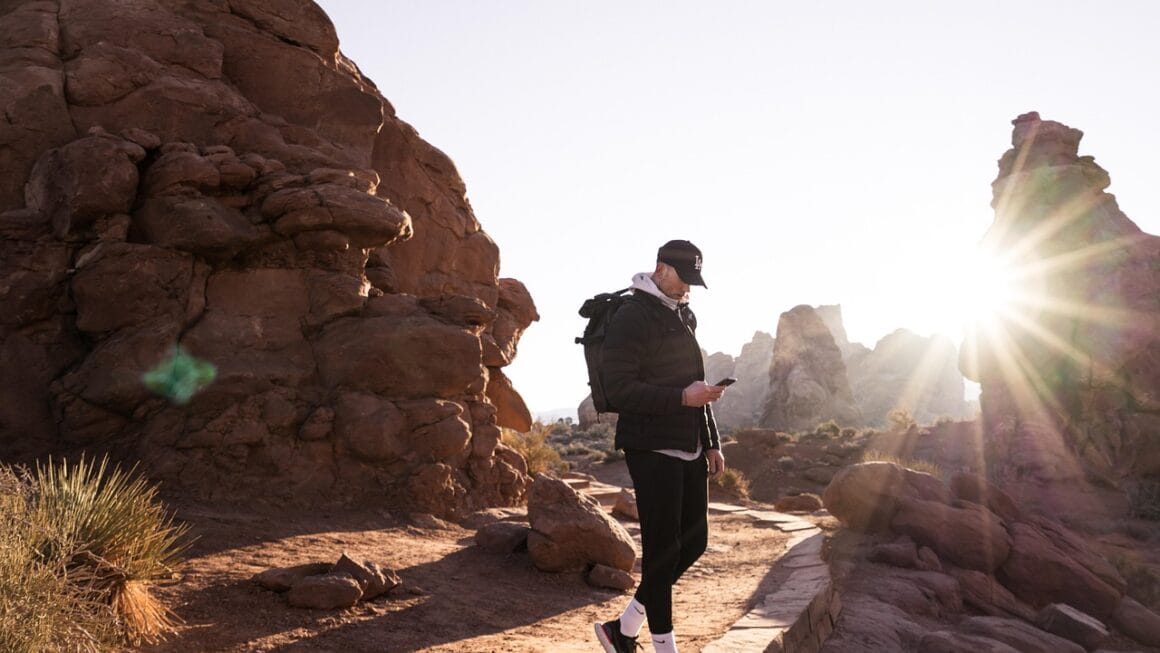Embarking on an international adventure is a thrilling prospect, filled with the promise of new cultures, breathtaking landscapes, and unforgettable experiences. However, venturing beyond familiar borders requires careful planning and preparation to ensure a smooth and enjoyable journey. This comprehensive guide is packed with essential international travel tips, designed to equip you with the knowledge and confidence to navigate the world with ease.
Pre-Trip Planning: Laying the Foundation for Success
Effective pre-trip planning is the cornerstone of a successful international trip. It’s more than just booking flights and accommodation; it’s about anticipating potential challenges and mitigating risks.
Visa and Passport Essentials
- Passport Validity: Ensure your passport is valid for at least six months beyond your intended stay. Many countries deny entry if your passport expires sooner.
- Visa Requirements: Research visa requirements well in advance. Websites like [IATA Travel Centre](https://www.iatatravelcentre.com/) offer comprehensive information. For example, US citizens generally don’t need a visa for short tourist stays in Europe’s Schengen Area, but this may change in the future.
- Photocopies and Digital Backups: Make photocopies of your passport, visa, driver’s license, and other important documents. Store them separately from the originals and upload digital copies to a secure cloud storage service like Google Drive or Dropbox. This is invaluable if your documents are lost or stolen.
- Emergency Contacts: Prepare a list of emergency contacts, including your embassy or consulate in the destination country. Keep a hard copy and save it in your phone.
Health and Safety Preparations
- Vaccinations: Consult your doctor or a travel clinic at least 6-8 weeks before your trip to determine necessary vaccinations and health precautions. The CDC website ([https://www.cdc.gov/travel/](https://www.cdc.gov/travel/)) is a valuable resource. For example, if you’re traveling to certain parts of Africa, yellow fever vaccination may be required.
- Travel Insurance: Invest in comprehensive travel insurance that covers medical emergencies, trip cancellations, lost luggage, and other unforeseen events. Compare different policies to find one that suits your needs. Consider policies from providers like World Nomads or Allianz Travel.
- Medications: Pack all necessary medications in their original containers with a copy of your prescription. Consider bringing a doctor’s note explaining your medical conditions and medications, especially if you’re carrying controlled substances.
- Health Precautions: Research potential health risks in your destination, such as malaria or dengue fever. Take appropriate preventative measures, such as using insect repellent, drinking bottled water, and avoiding raw or undercooked food.
Financial Planning and Budgeting
- Currency Exchange: Research the local currency and exchange rates. Consider ordering some local currency from your bank before you leave. Credit cards with no foreign transaction fees are essential.
- Budgeting: Create a detailed budget for your trip, including accommodation, transportation, food, activities, and souvenirs. Factor in unexpected expenses. Consider using a travel budgeting app.
- Notify Your Bank: Inform your bank and credit card companies of your travel dates and destinations to avoid having your cards blocked due to suspicious activity.
- Multiple Payment Methods: Carry a combination of cash, credit cards, and debit cards. Consider getting a travel card with low fees and good exchange rates.
Packing Smart: Traveling Light and Efficiently
Packing efficiently is crucial for comfortable and stress-free travel. Overpacking can lead to hefty baggage fees and unnecessary hassle.
Essential Packing List
- Clothing: Pack versatile clothing items that can be mixed and matched. Consider the climate and planned activities. Layers are often a good idea.
- Toiletries: Pack travel-sized toiletries to comply with airline regulations. Consider solid toiletries to save space and weight.
- Electronics: Pack necessary electronics, such as your phone, camera, and laptop. Don’t forget chargers, adapters, and a portable power bank.
- First-Aid Kit: Pack a basic first-aid kit with essentials like pain relievers, antiseptic wipes, bandages, and motion sickness medication.
- Comfort Items: Bring comfort items like a travel pillow, eye mask, and earplugs for long flights or train journeys.
Luggage Considerations
- Choose the Right Luggage: Select luggage that is lightweight, durable, and easy to maneuver. Consider a carry-on suitcase or backpack with wheels.
- Weight Limits: Be aware of airline weight and size restrictions for carry-on and checked baggage. Overweight baggage can result in significant fees.
- Packing Cubes: Use packing cubes to organize your luggage and compress your clothes. This makes it easier to find what you need and maximize space.
- Roll Your Clothes: Rolling your clothes instead of folding them can save space and reduce wrinkles.
Navigating Cultural Differences: Respect and Understanding
Traveling internationally exposes you to diverse cultures and customs. Approaching these differences with respect and understanding is essential for a positive travel experience.
Cultural Sensitivity
- Research Local Customs: Before you go, research the local customs, traditions, and etiquette of your destination. This will help you avoid unintentional offense. For example, in some cultures, it’s considered rude to point your feet at someone.
- Learn Basic Phrases: Learning a few basic phrases in the local language, such as “hello,” “thank you,” and “excuse me,” can go a long way in showing respect and building rapport with locals.
- Dress Appropriately: Dress modestly and respectfully, especially when visiting religious sites or conservative areas.
- Be Mindful of Body Language: Be aware of your body language and gestures. Some gestures that are acceptable in your culture may be offensive in others.
Communication Tips
- Learn Key Phrases: As mentioned, knowing key phrases in the local language is beneficial. Even attempting to speak the language will be appreciated.
- Use Translation Apps: Download translation apps like Google Translate or iTranslate to help you communicate with locals who don’t speak your language.
- Be Patient and Understanding: Be patient and understanding when communicating with people who don’t speak your language fluently. Speak slowly and clearly, and use gestures to aid understanding.
- Non-Verbal Communication: Pay attention to non-verbal cues and body language. Sometimes, you can communicate more effectively without words.
Avoiding Cultural Missteps
- Tipping Etiquette: Research tipping customs in your destination. Tipping practices vary widely around the world.
- Photography: Ask for permission before taking photos of people, especially in private settings.
- Public Displays of Affection: Be mindful of public displays of affection. In some cultures, they are considered inappropriate.
- Respect Religious Sites: When visiting religious sites, dress respectfully and follow any guidelines or rules.
Staying Connected: Communication and Technology
In today’s interconnected world, staying connected while traveling is easier than ever. However, it’s important to plan ahead to avoid exorbitant roaming charges and security risks.
Phone and Internet Access
- International Roaming: Check with your mobile carrier about international roaming plans. Roaming charges can be very high if you don’t have a plan.
- Local SIM Card: Consider purchasing a local SIM card upon arrival. This is often the most cost-effective way to access mobile data and make local calls.
- Wi-Fi: Take advantage of free Wi-Fi hotspots in hotels, cafes, and public spaces. Be cautious when using public Wi-Fi, as it may not be secure.
- Portable Wi-Fi Hotspot: Rent a portable Wi-Fi hotspot for reliable internet access on the go.
Essential Apps
- Maps: Download offline maps apps like Google Maps or Maps.me for navigation without internet access.
- Translation Apps: Google Translate, iTranslate.
- Currency Converter: XE Currency Converter.
- Travel Planning Apps: TripIt, PackPoint.
- Communication Apps: WhatsApp, Skype.
Digital Security
- Use a VPN: Use a virtual private network (VPN) to encrypt your internet traffic and protect your data when using public Wi-Fi.
- Secure Passwords: Use strong, unique passwords for all your online accounts.
- Be Cautious of Phishing: Be wary of phishing emails and scams that may target travelers.
- Back Up Your Data: Back up your data to a secure cloud storage service or external hard drive before you leave.
Staying Safe and Healthy: Prioritizing Well-being
Your safety and health should be your top priorities when traveling internationally. Being prepared for potential risks and taking preventative measures can help you stay safe and healthy throughout your journey.
Safety Precautions
- Be Aware of Your Surroundings: Be aware of your surroundings and avoid walking alone in unfamiliar areas, especially at night.
- Protect Your Belongings: Keep your valuables secure and out of sight. Be particularly vigilant in crowded areas.
- Avoid Scams: Be aware of common scams targeting tourists and avoid engaging with suspicious individuals.
- Emergency Contacts: Keep a list of emergency contacts, including your embassy or consulate, local police, and emergency services.
- Trust Your Instincts: If something feels wrong, trust your instincts and remove yourself from the situation.
Health Tips
- Drink Bottled Water: Drink bottled water to avoid waterborne illnesses.
- Eat Safe Food: Choose reputable restaurants and avoid eating raw or undercooked food.
- Wash Your Hands: Wash your hands frequently with soap and water, especially before meals.
- Get Enough Sleep: Get enough sleep to maintain your immune system and prevent fatigue.
- Stay Hydrated: Drink plenty of fluids to stay hydrated, especially in hot climates.
Conclusion
Traveling internationally can be one of the most rewarding experiences of your life. By taking the time to plan ahead, pack efficiently, respect cultural differences, stay connected, and prioritize your safety and health, you can ensure a smooth, enjoyable, and memorable journey. Remember that flexibility and a sense of adventure are your best allies when navigating the unexpected challenges and surprises that come with exploring the world. Safe travels!




